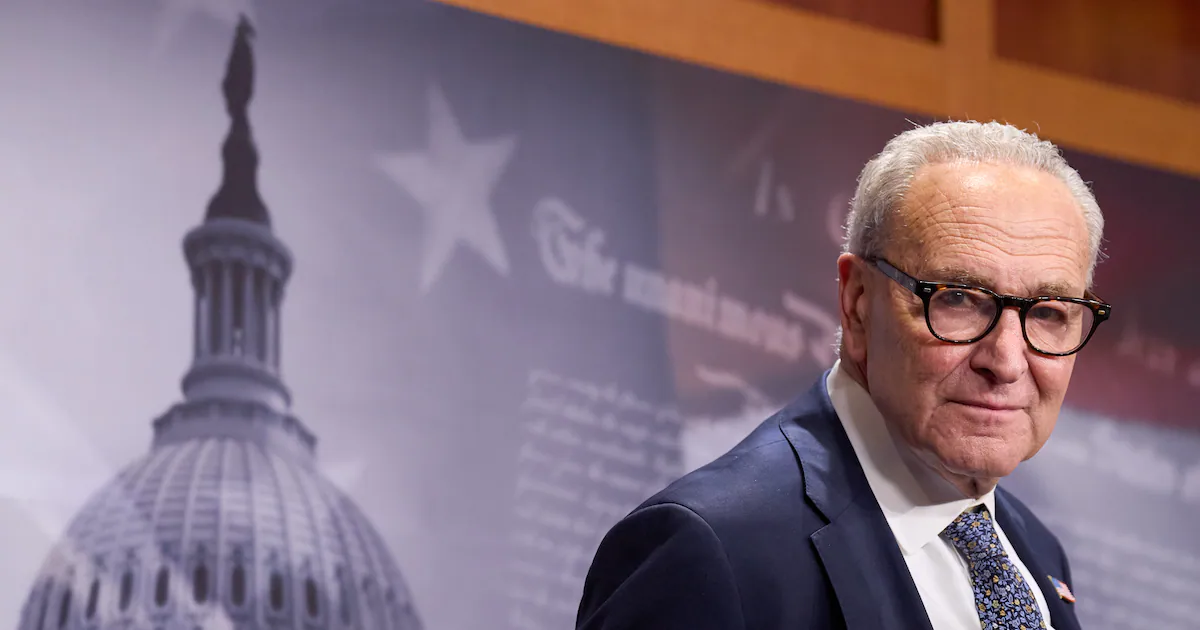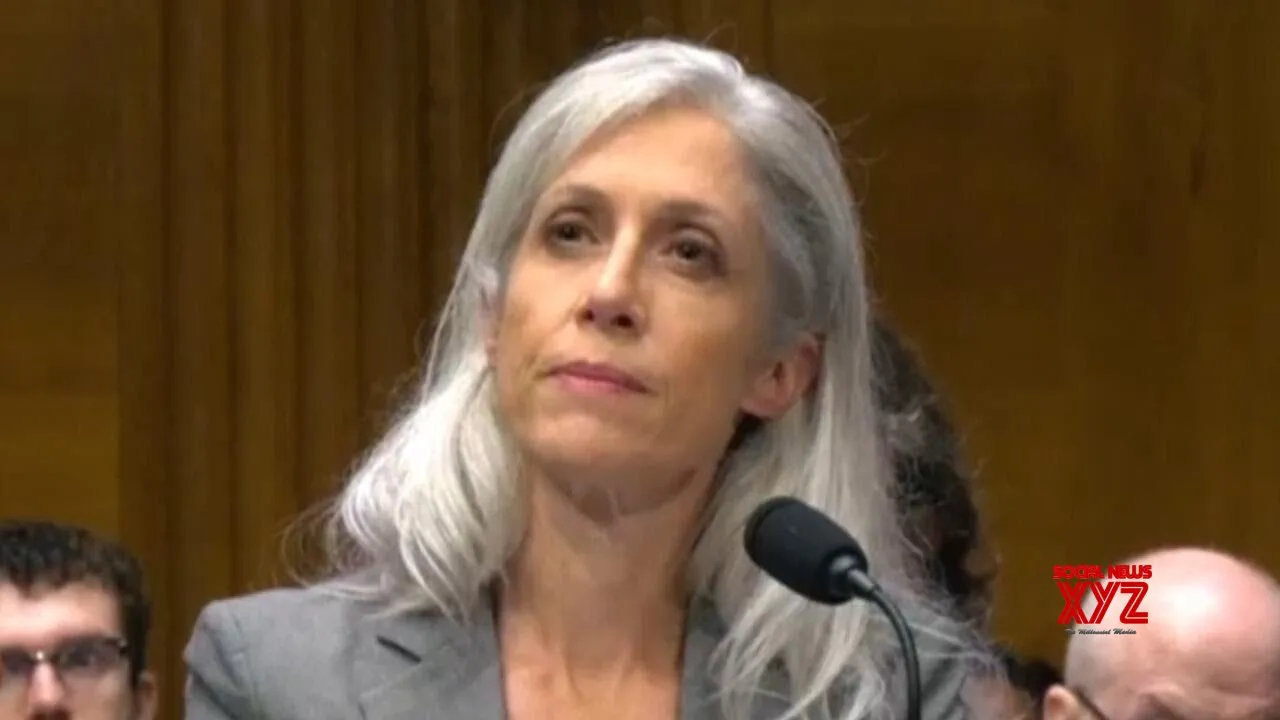
WASHINGTON — The government shut down at midnight on Wednesday, and the Senate is not scheduled to vote on a bill to reopen services until Friday at the earliest. Republicans are refusing to blink, betting their odds that Democrats in the minority will begin to feel the squeeze by their constituents.
To overcome a filibuster in the Senate, 60 senators must vote in favor of ending debate to proceed to the final vote. With Republicans’ slim majority, that means at least seven Democrats are required to cross party lines to vote on the GOP spending bill.
And that support, so far, hasn’t materialized. Instead, Democrats are demanding some concessions on health care policies or agreements to undo some of President Donald Trump’s spending cuts earlier this summer.
Only three Democrats or Democratic-aligned senators have broken with party leadership to support Republicans’ resolution — but GOP leaders say they sense momentum among a handful of others.
Who they’re keeping an eye on: The 10 Democrats who voted to advance Republicans’ stopgap funding bill in March to avoid a shutdown.
These are the Democratic senators to watch as the shutdown war wages on, and here’s how they’ve voted so far:
Sen. John Fetterman
Sen. John Fetterman, D-Penn., has emerged as a wild card among the Democratic Party due to his willingness to break with party leadership. And that reputation has been on display throughout the shutdown fight.
Fetterman was the first Democrat to support the GOP continuing resolution when it was voted on in mid-September, making him the only one at the time to break party lines. His stance is that he will support a deal to appease Democrats’ demands on health care — but he won’t shut the government down to achieve that.
“I voted AYE to extend ACA tax credits because I support them — but I won’t vote for the chaos of shuttering our government,” Fetterman said on Tuesday. “My vote was for our country over my party. Together, we must find a better way forward.”
Sen. Catherine Cortez Masto
Sen. Catherine Cortez Masto, D-Nev., was among the second batch of Democrats to flip their support. Despite voting to avoid a shutdown in March, Masto voted against the GOP continuing resolution when it was brought up for its first vote on Sept. 19.
However, the Nevada senator flipped her vote on Tuesday night just hours before a shutdown took place, arguing a federal funding freeze would hurt her constituents more than posturing over health care policy.
“This administration doesn’t care about Nevadans, but I do,” she said in a statement. “That’s why I cannot support a costly shutdown that would hurt Nevada families and hand even more power to this reckless administration. We need a bipartisan solution to address this impending health care crisis, but we should not be swapping the pain of one group of Americans for another.”
Still, Masto made clear on Wednesday — when she again voted in favor of the GOP bill — that she believes the shutdown fight was the fault of her Republican colleagues.
“They have no moral standing to stand back and say that this is all on the Democrats,” she told reporters. “They are in control. They’ve created this crisis. People are suffering.”
Sen. Angus King
Sen. Angus King, I-Maine, an independent who caucuses with Democrats in the Senate, also switched his vote on Tuesday night alongside Masto despite voting against the resolution in mid-September.
King echoed similar sentiments as Masto, arguing a shutdown would only give the Trump administration more power to enforce policies that Democrats consider harmful to the economy and health care system.
“The irony of this vote is many feel that this was an opportunity to stand up to Donald Trump, to vote no and to fight back” King said. “The irony, the paradox is by shutting the government down, we’re actually giving Donald Trump more power. And that was why I voted yes.”
Sen. Gary Peters
Sen. Gary Peters, D-Mich., voted to advance the March CR, but has so far voted against the latest Republican resolution three times.
Republicans say Peters is one of their top targets to watch for a potential flip — something the Michigan Democrat chuckled at when approached with that consideration on Wednesday.
“It’s premature to say that right now, we have to continue to have conversations,” Peters said. “I feel very strongly that we have to deal with the rise of health care costs for people across the country. … We need to take action now strongly about that, but also conversations — there are all sorts of trust issues, so we have to work through all of that.”
Sens. Maggie Hassan and Jeanne Shaheen
Two other senators that are being closely watched both come from the state of New Hampshire: Sens. Maggie Hassan and Jeanne Shaheen.
Both have so far voted against the Republican spending resolution all three times it’s been brought to the floor, but the pair have been open about their conversations with senators on the other side of the aisle.
They both want those conversations to center around an agreement on extending Obamacare tax subsidies, a main component of Democrats’ demands.
“I am encouraged that there are so many people on both sides that I think we can work this out,” Shaheen said, adding that the House must return to Washington in order to reach a bipartisan deal. The House is not scheduled to be back in session until Monday.
“We need a bipartisan path forward in order to get to a deal that protects people’s health, health care and prevents their premiums from doubling,” Hassan added separately.
Sen. Kirsten Gillibrand
Sen. Kirsten Gillibrand, D-N.Y., has been among the most elusive of the 10 Democrats who voted to avert a shutdown in March — despite voting against the Republican resolution twice this week.
But the New York senator has posted multiple times on social media slamming the Trump administration for slashing health care funding in its massive tax package this summer, signaling a compromise must be made in order to win her support.
“No one should face financial ruin because they need surgery or they’re battling cancer,” she said in a post on X. “Let’s come together to lower health care costs and fund the government.”
Sens. Chuck Schumer, Dick Durbin, and Brian Schatz
There are three members of Senate Democrats’ leadership team who took much of the fallout for avoiding a shutdown in March — who are now saying the party must hold the line.
Senate Minority Leader Chuck Schumer, D-N.Y., has repeatedly accused Republicans of threatening Americans’ health care through Trump’s spending cuts — a talking point echoed by Sens. Dick Durbin, the minority whip, and Brian Schatz, chief deputy whip.
“Republicans once again rejected Democratic proposals to avoid a shutdown, fix health care premiums and spare Americans the calamity of skyrocketed, through-the-roof health care costs,” Schumer said on Tuesday. “They’ve got to sit down and negotiate with Democrats to come to a bill that both parties can support.”
But the trio is being closely watched because of their leadership positions — what they decide, others are likely to follow. But Schumer is being pushed by progressive members of his caucus, particularly those in the House, to push back harder against Republican demands.
It’s not clear how long Democrats are willing to hold out.
“The question is how long Republicans can explain to the American people that they want to do nothing to help pay for health insurance,” Durbin said in response to how long Democrats could push against the majority.



